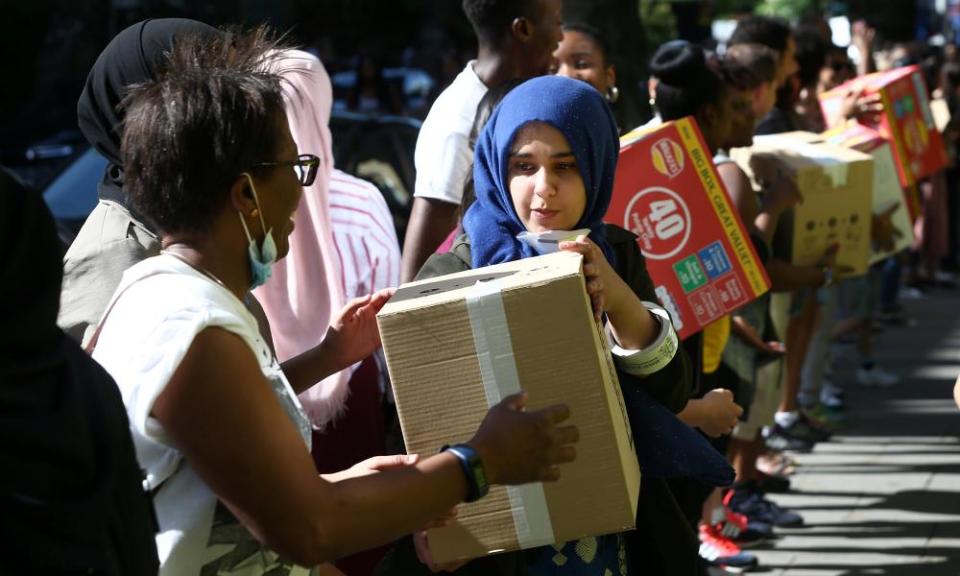The UK needs a DEC to ensure donations are secure | Sarah Miller

The last few months have brought some truly tragic events – the terror attacks in Westminster, Manchester, London Bridge and Finsbury Park, and the fire at Grenfell Tower. All have been followed, however, by an immense and uplifting outpouring of generosity in response, from all corners of the community.
Local faith groups and community centres have been overwhelmed in Kensington, for example, by the scale of donations of food, clothing and essentials, alongside offers of volunteers and beds for the night.
The level of financial assistance pledged has also been huge. Hundreds of appeals have been set up, many by charities, but many others by ordinary people using social media. More than 250 fundraising pages on JustGiving’s website to help victims of the Grenfell Tower fire. And that’s just one platform. We’re not talking minor amounts here, either: one JustGiving page alone, created by a local teacher, has raised £1.3m.
But running so many small separate appeals cannot be the most effective way to get the right help to the right people. How can we be sure some of that money isn’t lost, used poorly or stolen?
The solution could be simple, because we already have a model to deal with this issue. When an international disaster strikes, the Disasters Emergency Committee (DEC) ensures that a joint fundraising appeal between all the major aid agencies is launched quickly, with built-in PR and advertising to promote it widely. Funds are then divided according to which charities are best-placed on the ground. Charities also state how they will spend the money.
People need to know donations are secure, with money guaranteed to go to the cause for which it has been raised
If we had a domestic DEC, an appeal could be launched within minutes of a UK emergency, like the Grenfell Tower fire. A permanent DEC in this country could have a dedicated phone line and website ready to go. Funds could be collected in one central place and distributed fairly to charities supporting those affected.
But unlike the DEC, there should also be a mechanism to ensure that small, local charities have quick access to money. It is these small charities that are often already in place in local communities and they swing into action straight away – but they have neither the time nor the ability to do the kind of fundraising undertaken by big household names. This can lead to a potential mismatch between who is doing most on the ground and who is raising the most money.
There has been some talk of coordination before, but it has always stalled. The sheer number and scale of recent tragedies, however, should bring it back with greater urgency than ever. We need to have a conversation across the public and charity sectors, including national government, local government, the Charity Commission, umbrella bodies and key charities that respond to such emergencies. Seats at the table must also be reserved for representatives of small charities to ensure their voices are heard clearly.
The question is partly about how people’s generosity can be channelled most effectively, but it is also about public trust and confidence. Donors need to know that they are giving in a way that is secure, with the money guaranteed to go to the cause for which it has been raised and used wisely. The challenge now is for everyone to work together to find a way that will have the most impact, as quickly as possible.
Sarah Miller is a freelance consultant and was formerly head of press and public affairs at the Charity Commission.
Talk to us on Twitter via @Gdnvoluntary and join our community for your free fortnightly Guardian Voluntary Sector newsletter, with analysis and opinion sent direct to you on the first and third Thursday of the month.

 Yahoo News
Yahoo News 